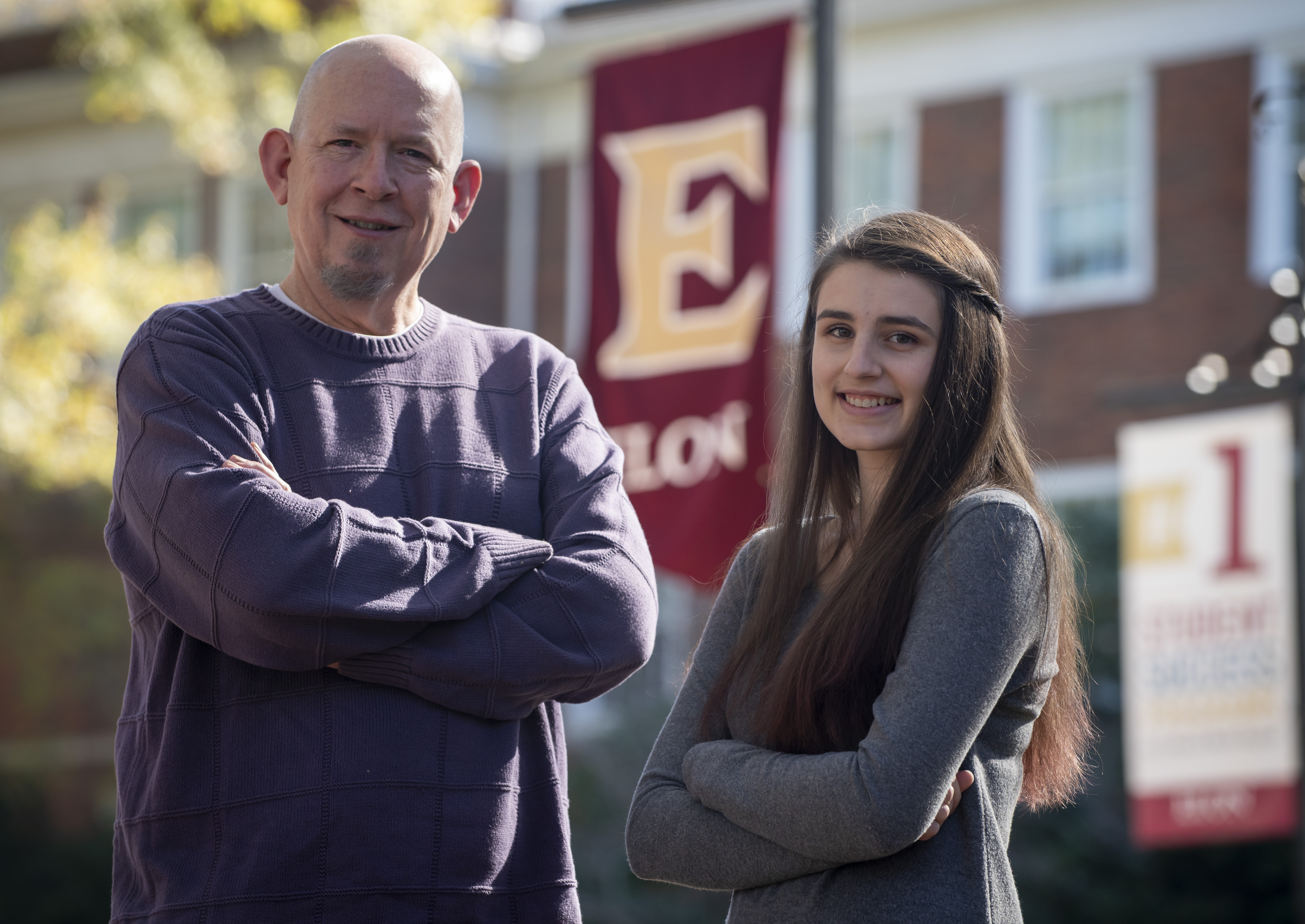Moore and her mentor, Professor of Mathematics Todd Lee, are using statistics to explore the effects of gerrymandering in North Carolina.
As an Honors Fellow and Lumen Scholar, Amy Moore ’22 has been able to pair her passion for statistics with an exploration of the effects of gerrymandering on politics and voting in her home state of North Carolina. Her research comes at a time when the process of drawing congressional districts in the state has taken center stage in political discussions amid increased scrutiny and court challenges that have risen to the U.S. Supreme Court.
“I am originally from Hillsborough, which led me to grow up hearing about the gerrymandering problem in North Carolina since I was in middle school,” Moore said. “After learning about gerrymandering in social studies classes, I knew how much of a hot topic in politics gerrymandering is, especially in N.C., and how my research could have a broader impact.”
Moore, who is pursuing a double major in applied math and biostatistics, took a class with Professor of Mathematics Todd Lee during her first year at Elon. After hearing him mention his potential interest in researching gerrymandering, she immediately reached out to him. Lee has mentored over 40 students in their research throughout his time at Elon and was eager to work with Moore. He had never tackled a gerrymandering research project before, and he knew that Moore would be up to the challenge.
“I knew she was quite capable of rising to the demands of a Lumen Scholar,” Lee said. “This is the first time I have personally worked on the gerrymandering problem, so Amy’s work will be foundational for future students of mine.”
The Lumen Prize, the university’s most prestigious award for undergraduate research, awards scholars a $20,000 scholarship to support a chosen research project, and gives them the opportunity to work closely with a faculty mentor on that project for two years. Each year, 15 rising juniors are named Lumen Scholars and conduct research that often produces conference presentations and publications.
With the assistance of Professor Crista Arangala, chair of the Department of Mathematics and Statistics, Moore and Lee have been able to make remarkable progress using statistical and mathematical coding techniques.
“The Lumen application requires a lot of planning and preparation, but it is totally worth it because it requires you to become an expert on the topic you want to research,” Moore explained.
Since Lee and Moore are working with such a large data set, they took on the task of writing code to sift through data more easily. Through trial and error with coding, the pair looked at census data have used computations to create different possibilities for connected districts.
Eventually, they will run hypothetical elections to determine what election results could look like in certain districts depending upon how they are drawn. The pair hopes to compare the results with recent sets of districts used in North Carolina to determine the fairness of the recent districts that have been used.
Despite spending long periods of time exploring data and writing code, Moore has still been incredibly involved at Elon. She is completing a minor in dance and is the current president of Elon’s Dance Works, an open student-run dance club. She is the vice president of Mu Sigma Rho, the statistics honors society, and is on the retreat planning team for Campus Catholic Ministry.
“Amy has all the talent and independent work ethic that anyone could ask for,” Lee said. “She has a broader, liberal arts view of the world, which is critical when working on an applied research project where decisions often depend as much on real-world nuances as it does on math theory.”
Since being awarded the Lumen Prize, Moore has been inspired to pursue research in other interdisciplinary fields. During the past two summers, she has participated in summer research experiences for undergraduate programs in biomathematics. Moore has gained valuable knowledge on disease modeling and machine learning algorithms.
After Moore graduates in the spring, she hopes to pursue a doctoral degree in biostatistics, specifically focusing on studying spatial statistics. This would help her combine the geographic data she has gathered from her Lumen work with her summer research findings in disease modeling.
“The biggest upside to being awarded the Lumen Prize was the validation that people outside of just the math and stats department viewed my project as being a relevant and important topic that was worth investing in,” she said.
Learn more about the Lumen Prize and other Lumen Scholars here.



